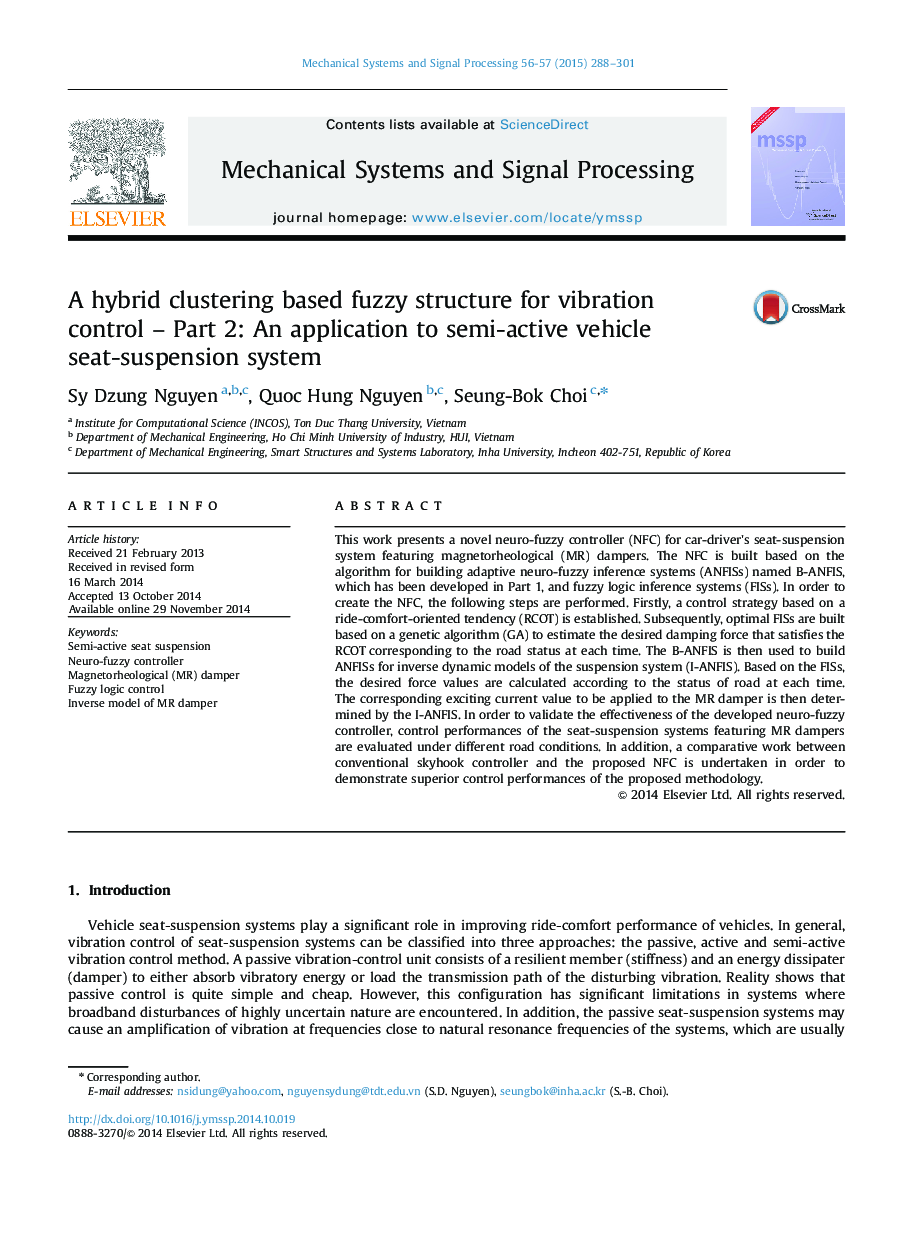| Article ID | Journal | Published Year | Pages | File Type |
|---|---|---|---|---|
| 6956205 | Mechanical Systems and Signal Processing | 2015 | 14 Pages |
Abstract
This work presents a novel neuro-fuzzy controller (NFC) for car-driver׳s seat-suspension system featuring magnetorheological (MR) dampers. The NFC is built based on the algorithm for building adaptive neuro-fuzzy inference systems (ANFISs) named B-ANFIS, which has been developed in Part 1, and fuzzy logic inference systems (FISs). In order to create the NFC, the following steps are performed. Firstly, a control strategy based on a ride-comfort-oriented tendency (RCOT) is established. Subsequently, optimal FISs are built based on a genetic algorithm (GA) to estimate the desired damping force that satisfies the RCOT corresponding to the road status at each time. The B-ANFIS is then used to build ANFISs for inverse dynamic models of the suspension system (I-ANFIS). Based on the FISs, the desired force values are calculated according to the status of road at each time. The corresponding exciting current value to be applied to the MR damper is then determined by the I-ANFIS. In order to validate the effectiveness of the developed neuro-fuzzy controller, control performances of the seat-suspension systems featuring MR dampers are evaluated under different road conditions. In addition, a comparative work between conventional skyhook controller and the proposed NFC is undertaken in order to demonstrate superior control performances of the proposed methodology.
Related Topics
Physical Sciences and Engineering
Computer Science
Signal Processing
Authors
Sy Dzung Nguyen, Quoc Hung Nguyen, Seung-Bok Choi,
